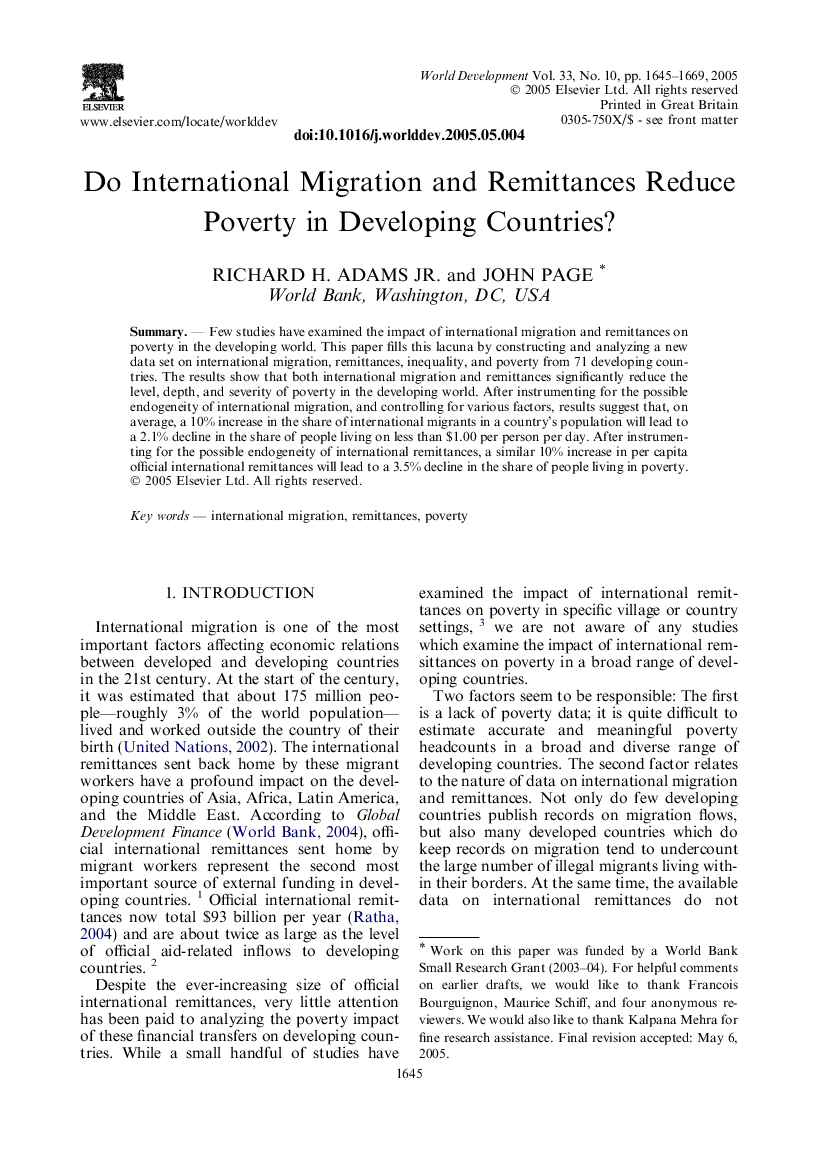| Article ID | Journal | Published Year | Pages | File Type |
|---|---|---|---|---|
| 10485176 | World Development | 2005 | 25 Pages |
Abstract
Few studies have examined the impact of international migration and remittances on poverty in the developing world. This paper fills this lacuna by constructing and analyzing a new data set on international migration, remittances, inequality, and poverty from 71 developing countries. The results show that both international migration and remittances significantly reduce the level, depth, and severity of poverty in the developing world. After instrumenting for the possible endogeneity of international migration, and controlling for various factors, results suggest that, on average, a 10% increase in the share of international migrants in a country's population will lead to a 2.1% decline in the share of people living on less than $1.00 per person per day. After instrumenting for the possible endogeneity of international remittances, a similar 10% increase in per capita official international remittances will lead to a 3.5% decline in the share of people living in poverty.
Related Topics
Social Sciences and Humanities
Economics, Econometrics and Finance
Economics and Econometrics
Authors
Richard H. Jr., John Page,
